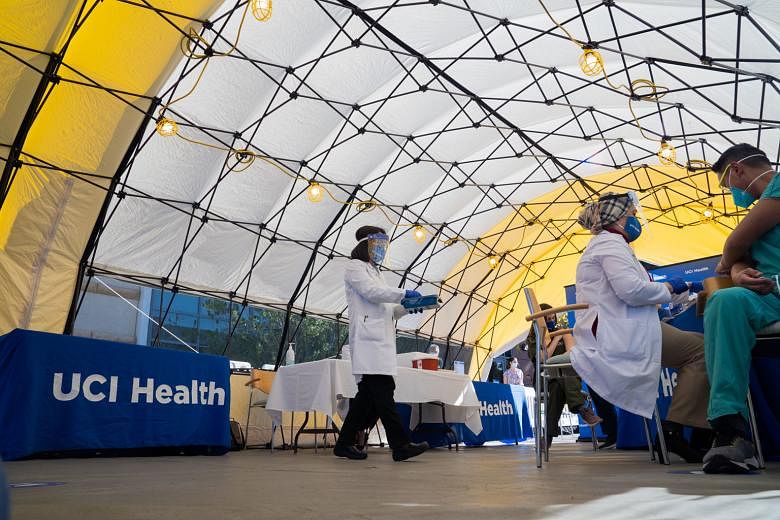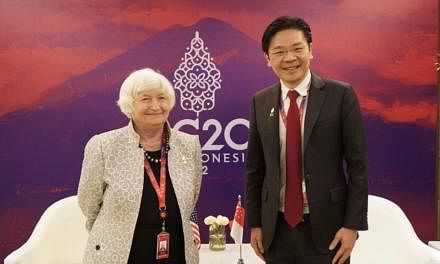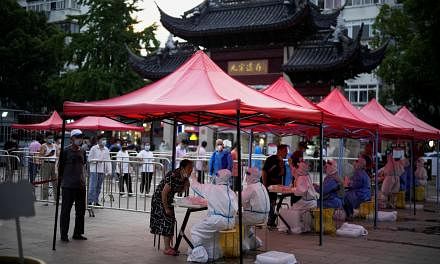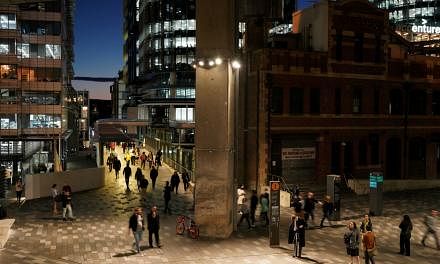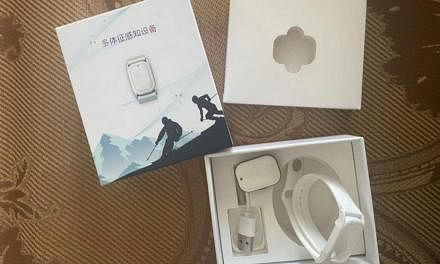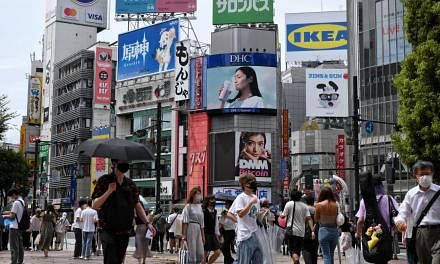WASHINGTON • The first days of Pfizer's Covid-19 vaccine roll-out in the United States saw unexpected hitches, including some vaccines being stored at overly low temperatures and Pfizer reporting potential production challenges.
At least two trays of vaccine doses delivered in California had to be replaced after their storage temperatures dipped below minus 80 deg C, US Army General Gustave Perna said on Wednesday.
Pfizer's vaccines, made with partner BioNTech, are supposed to be kept at around minus 70 deg C. Officials are investigating if storing them at excessively cold temperatures poses a safety or efficacy risk.
Pfizer also reported some production issues, though officials did not outline what the specific manufacturing challenges were.
"We will ensure that by whatever mechanism... we provide them full support to ensure that they can produce for the American people," said Secretary of Health and Human Services Alex Azar.
Pfizer had earlier said it was asking the US government to use the Defence Production Act to relieve "critical supply limitations", particularly of some components.
The Food and Drug Administration (FDA) said that extra doses from vials of the Pfizer vaccine can be used, after reports of pharmacists throwing out doses due to labelling confusion.
The vials are supposed to hold five doses, according to the labelling, but media reports said pharmacists had found a sixth or even a seventh dose possible.
Without clear approval from the manufacturer, however, the extra doses had to be discarded.
"Given the public health emergency, FDA is advising that it is acceptable to use every full dose obtainable... from each vial," an FDA representative said.
"However, since the vials are preservative-free, it is critical to note that any further remaining product that does not constitute a full dose should not be pooled from multiple vials to create one."
Officials on Wednesday said they plan to allocate two million doses of the Pfizer vaccine next week, and 5.9 million doses of Moderna's, assuming it receives regulatory authorisation. Moderna's vaccine will most likely be authorised today, the officials said.
The US has already contracted for 300 million vaccine doses between the Pfizer-BioNTech shot and one from Moderna in the first half of next year, and 900 million doses in total from drug makers developing Covid-19 vaccines. Two doses, three or four weeks apart, are required for each person.
-
900m
Number of doses the United States has contracted for from drug makers developing Covid-19 vaccines.
Vice-President Mike Pence will publicly receive the vaccine today, as the Trump administration scrambles to build public support for a mass inoculation campaign to staunch the deadly pandemic.
He will be the most high-profile recipient of the vaccine to date.
President-elect Joe Biden will publicly receive the vaccine next week, transition officials said. At age 78, he is in the high-risk group for the disease. He has vowed to make the fight against the virus his top priority when he takes office.
President Donald Trump, meanwhile, will get the vaccine when his medical team decides it is best, according to the White House.
Interior Department Secretary David Bernhardt tested positive for the virus on Wednesday, before a planned meeting with Mr Trump.
Mr Bernhardt's positive test result comes after a flurry of recent encounters with some of the department's top political appointees and staff, as well as a ceremony to unveil a portrait of former interior secretary Ryan Zinke last week.
REUTERS, BLOOMBERG
